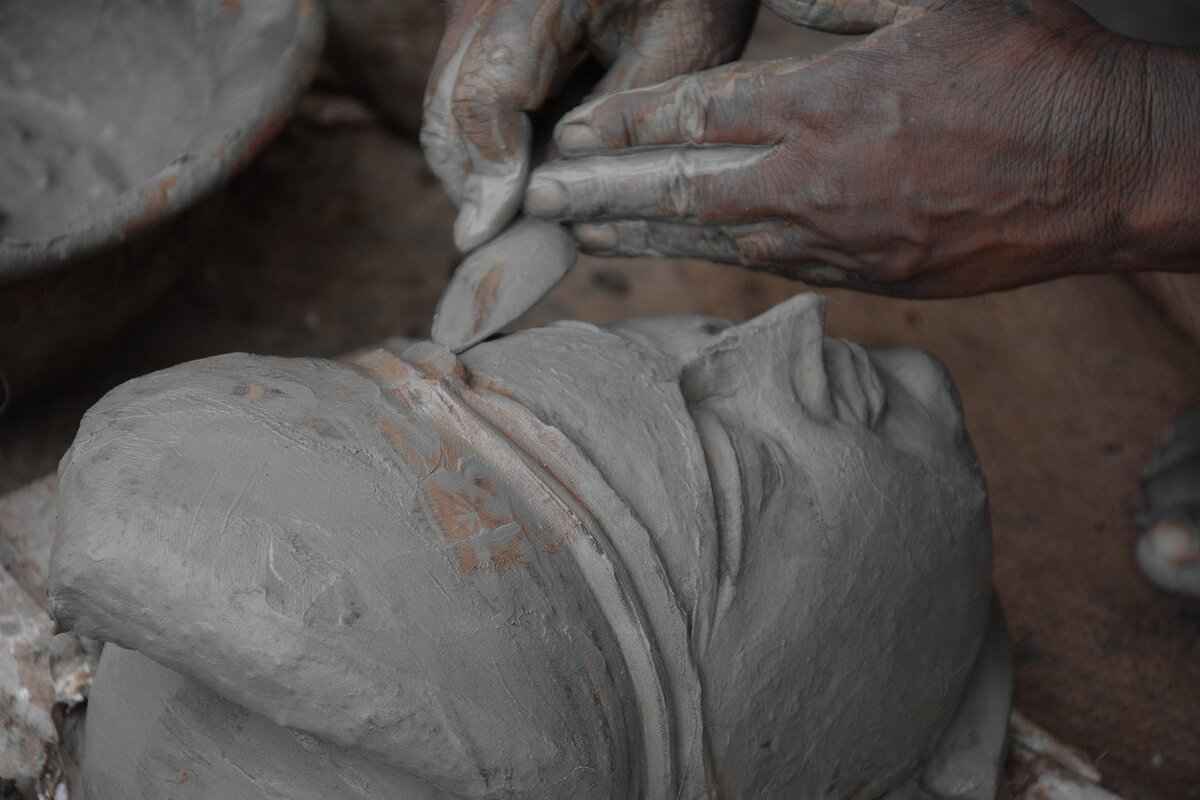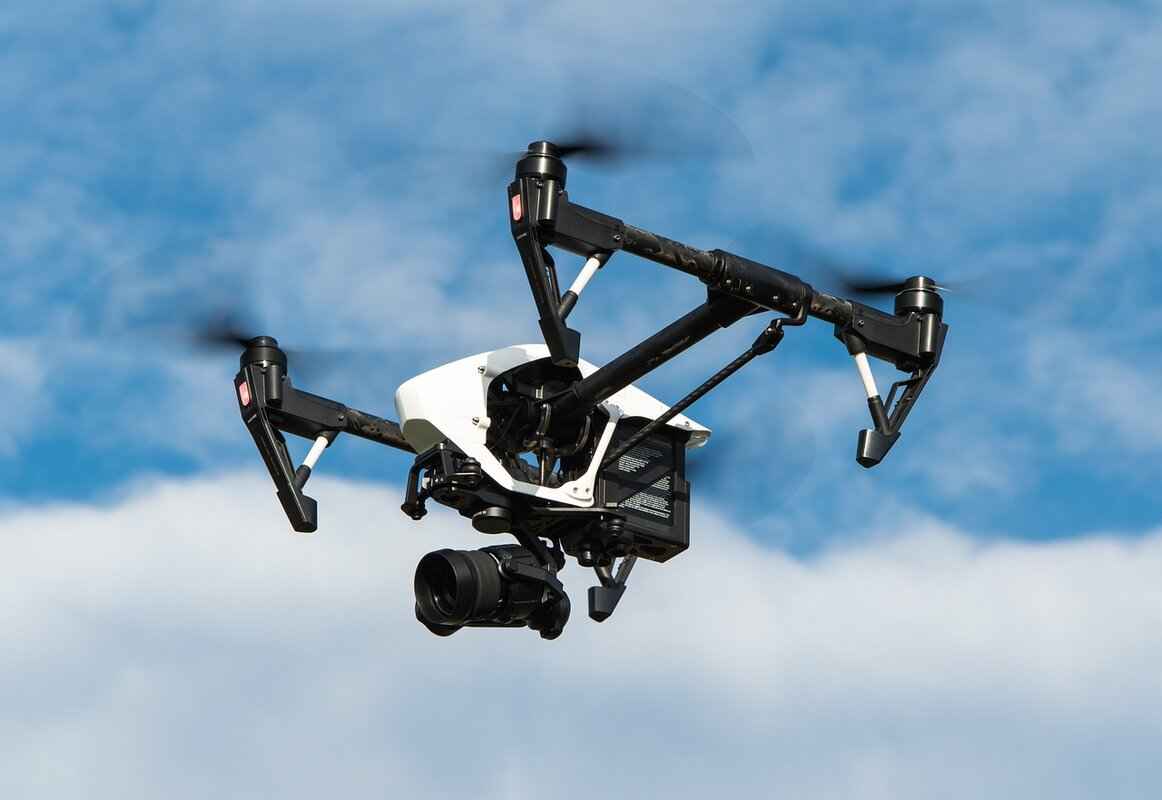This article explores the dynamic changes in West Bengal’s economy in 2024, highlighting key sectors, government initiatives, and the impact of technological advancements on local businesses.
Overview of West Bengal’s Economic Landscape
In 2024, West Bengal’s economy is witnessing a significant transformation, driven by a combination of traditional industries and emerging sectors. The state’s GDP growth rate has shown resilience, attributed to the diversification of its economic base. Major industries contributing to this growth include agriculture, manufacturing, and services. Employment trends indicate a shift towards skilled labor, reflecting the changing demands of the job market.
Key Sectors Driving Economic Growth
- Agriculture: The backbone of the economy, with innovations enhancing productivity.
- Manufacturing: A growing sector facing challenges but also opportunities for expansion.
- Services: Rapid growth in IT and digital services, contributing significantly to employment.
Government Initiatives Supporting Economic Development
The West Bengal government has launched several initiatives aimed at fostering economic growth:
- Infrastructure Development Projects: Major investments in transportation and industrial parks are underway.
- Skill Development Programs: Focused on enhancing the employability of the youth, aligning skills with industry needs.
The Role of Technology in Economic Transformation
Technological advancements are reshaping the economy, with a notable rise in startups and the digital economy. The emergence of innovation hubs is fostering entrepreneurship, while e-governance initiatives are improving transparency and efficiency in local businesses.
Challenges Facing the Local Economy
Despite these positive developments, West Bengal faces challenges such as political instability, infrastructure deficits, and environmental concerns that could hinder long-term growth.
Future Outlook: Economic Predictions for 2024 and Beyond
Experts predict a continued upward trajectory for West Bengal’s economy, with emerging sectors like technology and green energy poised for growth. The focus on sustainable practices and innovation will be crucial in navigating the challenges ahead.

Overview of West Bengal’s Economic Landscape
As of 2024, West Bengal’s economy is undergoing significant transformation, characterized by a blend of traditional sectors and emerging industries. The state has been witnessing a steady growth rate, with projections indicating a GDP growth of approximately 7.5%, driven by various initiatives aimed at revitalizing its economic landscape.
West Bengal is home to several major industries that play a crucial role in its economic health. The primary sectors contributing to this growth include:
- Agriculture: The agricultural sector remains a cornerstone of West Bengal’s economy, with rice and jute being the leading products. Innovations in farming techniques and increased investment in agribusiness have significantly boosted productivity and rural livelihoods.
- Manufacturing: The manufacturing sector, particularly textiles, electronics, and food processing, has shown resilience. However, challenges such as outdated infrastructure and competition from other states persist.
- Services: The services sector is rapidly expanding, with IT and tourism emerging as key contributors. The growth of digital services is transforming the local economy, providing new employment opportunities.
Employment trends in West Bengal reflect this economic evolution. The state has seen a shift towards more skilled jobs, particularly in technology and services, while traditional sectors continue to employ a significant portion of the workforce. Government initiatives aimed at skill development and vocational training are helping to bridge the gap between job demand and supply.
In conclusion, West Bengal’s economic landscape is shaped by a combination of traditional industries and modern advancements. With ongoing government support and a focus on sustainable practices, the region is poised for continued growth and development in the coming years.

Key Sectors Driving Economic Growth
West Bengal’s economy is characterized by a diverse array of sectors that significantly contribute to its growth and development. In 2024, three primary sectors stand out: Agriculture, Manufacturing, and Services. Each of these sectors plays a crucial role in shaping the local economy, providing employment opportunities, and fostering innovation.
- Agriculture: The agricultural sector remains the backbone of West Bengal’s economy, employing a large portion of the population. The state is renowned for its production of rice, jute, and various fruits and vegetables. Innovations in farming practices, such as the adoption of sustainable agriculture techniques, have improved productivity and enhanced the livelihoods of rural farmers.
- Manufacturing: The manufacturing sector in West Bengal has seen significant growth, particularly in industries such as textiles, electronics, and food processing. This sector not only contributes to the state’s GDP but also plays a vital role in job creation. However, manufacturers face challenges such as infrastructure deficits and competition from other states.
- Services: The services sector is rapidly expanding, driven by information technology, tourism, and financial services. With the rise of digital platforms and e-commerce, this sector has become a key driver of economic growth, attracting investments and creating numerous job opportunities.
Each of these sectors has a unique impact on the local economy:
- Agriculture ensures food security and contributes to rural development.- Manufacturing enhances industrial output and strengthens supply chains.- Services drive innovation and improve the quality of life for residents.
In conclusion, the interplay between agriculture, manufacturing, and services is vital for West Bengal’s economic growth. By focusing on these key sectors, the state can harness its potential and pave the way for a prosperous future.
Agriculture: The Backbone of the Economy
Agriculture plays a pivotal role in the economy of West Bengal, serving as the backbone of rural livelihoods and significantly contributing to the state’s overall economic landscape. This sector not only supports the majority of the population but also drives various ancillary industries, creating a ripple effect throughout the economy.
Major Crops Produced
- Rice: West Bengal is the leading producer of rice in India, accounting for a substantial percentage of the country’s total output. The state’s favorable climatic conditions and fertile alluvial soil make it ideal for rice cultivation.
- Jute: Known as the “Golden Fiber,” jute is another significant crop for West Bengal. The state is the largest producer of jute globally, contributing to both domestic and international markets.
- Other Crops: In addition to rice and jute, West Bengal also cultivates a variety of fruits, vegetables, and pulses, enhancing food security and providing diverse income sources for farmers.
Innovations in Farming Practices
In recent years, West Bengal has witnessed a shift towards sustainable and innovative farming practices. Farmers are increasingly adopting techniques such as:
- Organic Farming: This method reduces chemical usage, improving soil health and crop quality.
- Agroforestry: Integrating trees with crops enhances biodiversity and provides additional income sources.
- Technology Integration: The use of mobile apps and digital platforms for weather forecasts, market prices, and pest management has empowered farmers to make informed decisions.
Significance of Agribusiness
Agribusiness in West Bengal is crucial for enhancing rural livelihoods. It encompasses various activities, including processing, distribution, and marketing of agricultural products. By fostering value-added processes, agribusiness creates job opportunities and increases farmers’ income, contributing to poverty alleviation in rural areas.
In conclusion, the agricultural sector in West Bengal is not just a means of sustenance; it is a vibrant and dynamic component of the state’s economy. Through the cultivation of major crops, the adoption of innovative farming practices, and the growth of agribusiness, West Bengal is paving the way for a more prosperous and sustainable future.
Rice and Jute Production
West Bengal is renowned for its rich agricultural heritage, with rice and jute standing out as the two most significant crops. These staples not only play a crucial role in the local economy but also hold substantial potential in the global market.
Economic Importance of Rice
Rice is the primary food crop in West Bengal, contributing significantly to the state’s agricultural output. In 2024, West Bengal is projected to produce over 15 million tons of rice, making it one of the largest producers in India. The state’s favorable climatic conditions and fertile alluvial soil are ideal for rice cultivation. This crop supports the livelihoods of millions of farmers and contributes to food security in the region.
Export Potential of Rice
With the increasing demand for high-quality basmati and non-basmati rice in global markets, West Bengal has the potential to expand its rice exports. Countries in the Middle East and Southeast Asia are particularly interested in sourcing rice from India. The government is actively promoting initiatives to enhance rice quality and packaging, aiming to boost export figures significantly.
Jute: The Golden Fiber
Jute, often referred to as the ‘golden fiber’, is another vital agricultural product of West Bengal. The state accounts for approximately 60% of India’s jute production. Jute cultivation not only provides employment to millions but also supports sustainable farming practices due to its low environmental impact.
Global Demand for Jute Products
As the world shifts towards eco-friendly alternatives, the demand for jute products, such as bags and textiles, is on the rise. West Bengal is well-positioned to capitalize on this trend, with several initiatives aimed at promoting jute-based products in international markets. The government is also investing in research and development to enhance jute fiber quality and processing techniques.
Conclusion
In conclusion, rice and jute are not only essential to West Bengal’s agricultural landscape but also hold immense potential for economic growth and export opportunities. By leveraging sustainable practices and enhancing product quality, West Bengal can strengthen its position in the global market, benefiting both local farmers and the economy.
Sustainable Farming Practices
have emerged as a crucial aspect of modern agriculture, particularly in regions like West Bengal. The adoption of these techniques not only enhances productivity but also plays a significant role in environmental conservation and the overall health of the agricultural economy.
In West Bengal, where agriculture is a primary source of livelihood for millions, sustainable farming practices are gaining traction. These methods include crop rotation, organic farming, and the use of integrated pest management systems. By implementing these techniques, farmers can improve soil health, reduce dependency on chemical fertilizers, and increase biodiversity.
Impact on Productivity: Sustainable farming practices have shown to enhance productivity through improved soil quality and reduced erosion. For instance, the use of organic fertilizers can lead to higher yields of crops like rice and jute, which are staples in West Bengal. Farmers adopting these practices often report better crop resilience against pests and diseases, contributing to more stable production levels.
Environmental Conservation: The environmental benefits of sustainable farming are profound. By minimizing chemical use, farmers help reduce water pollution and promote healthier ecosystems. Techniques such as cover cropping and agroforestry not only sequester carbon but also support local wildlife, making farming practices more eco-friendly.
Economic Benefits: The overall agricultural economy of West Bengal stands to gain significantly from the widespread adoption of sustainable practices. As consumers increasingly demand organic and sustainably sourced products, farmers can tap into new markets, potentially increasing their income. Additionally, government initiatives and support programs aimed at promoting sustainable agriculture further bolster this economic transition.
In conclusion, the adoption of sustainable farming practices in West Bengal is a multifaceted approach that benefits not only farmers but also the environment and the economy. By embracing these techniques, West Bengal can pave the way for a more resilient agricultural sector that meets the challenges of the future.
Manufacturing Sector: Growth and Challenges
The manufacturing sector in West Bengal has undergone significant transformation over the years, playing a crucial role in the region’s economic landscape. This analysis delves into the evolution of key industries such as textiles, electronics, and food processing, while also addressing the challenges faced by manufacturers.
Historically, West Bengal has been a hub for the textile industry, particularly known for its jute and cotton production. The state’s rich resources and skilled workforce have fostered a vibrant textile market. However, the industry faces challenges such as global competition and the need for modernization to keep pace with technological advancements. Manufacturers are increasingly adopting automation and sustainable practices to enhance productivity and reduce environmental impact.
The electronics sector is another vital component of West Bengal’s manufacturing landscape. With the rise of digital technologies, demand for electronic goods has surged. The state government has implemented various initiatives to attract investments in this sector, including the establishment of electronic parks and incentives for manufacturers. Despite these efforts, challenges such as skilled labor shortages and infrastructure deficits continue to hinder growth.
Furthermore, the food processing industry is rapidly expanding, driven by increasing consumer demand for processed foods. This sector not only contributes to the economy but also plays a significant role in enhancing the agricultural value chain. Manufacturers are focusing on quality control and innovative packaging to meet consumer expectations. However, they face challenges related to regulatory compliance and supply chain disruptions.
In conclusion, while the manufacturing sector in West Bengal shows promising growth potential, it is imperative for stakeholders to address existing challenges. By embracing technology, enhancing workforce skills, and improving infrastructure, manufacturers can pave the way for a more robust economic future.

Government Initiatives Supporting Economic Development
West Bengal has witnessed significant government initiatives aimed at fostering economic growth and development. These programs focus on enhancing infrastructure, providing investment incentives, and promoting skill development among the local workforce. This multifaceted approach is designed to create a robust economic environment that attracts both domestic and foreign investments.
Infrastructure Development
The government has prioritized infrastructure development as a cornerstone of economic growth. Major projects include the expansion of transportation networks such as roads, railways, and ports, which are crucial for facilitating trade and mobility. Additionally, the establishment of industrial parks aims to provide dedicated spaces for manufacturing and service industries, thereby boosting job creation and economic output.
Investment Incentives
To stimulate investment, the West Bengal government has introduced various incentive schemes that offer tax benefits, subsidies, and grants to businesses. These incentives are particularly aimed at attracting startups and small enterprises, which are vital for innovation and job creation. Furthermore, the government has streamlined the business registration process to make it easier for entrepreneurs to establish and grow their businesses.
Skill Development Programs
Recognizing the importance of a skilled workforce, several skill development initiatives have been launched. These programs focus on training young individuals in emerging sectors such as information technology, healthcare, and manufacturing. Collaborations with educational institutions and industry leaders ensure that the training provided aligns with current market demands, thereby enhancing employability.
In conclusion, the government of West Bengal is actively investing in infrastructure, offering attractive incentives, and promoting skill development to create a vibrant economic landscape. These initiatives are not only aimed at boosting local businesses but also at positioning West Bengal as a competitive player in the national and global economy.
Infrastructure Development Projects
West Bengal is currently witnessing a transformative phase with several major infrastructure projects underway. These initiatives are designed to enhance transportation networks, establish industrial parks, and improve overall connectivity, which are crucial for driving economic growth and attracting investment.
Transportation Networks
The state government is investing significantly in upgrading transportation infrastructure, including roads, railways, and waterways. Major projects such as the Kolkata Metro Expansion and the Eastern Peripheral Expressway aim to reduce congestion and improve travel efficiency. These enhancements are expected to facilitate smoother logistics, thereby benefiting local businesses and encouraging new investments.
Industrial Parks
In addition to transportation, the establishment of dedicated industrial parks is a key focus. The government is developing multiple industrial zones across the state, including the Bengal Silicon Valley and Bengal Global Business Summit. These parks are designed to attract industries ranging from technology to manufacturing, providing them with the necessary infrastructure and support to thrive.
Expected Economic Impact
The expected impact of these infrastructure projects on West Bengal’s economy is substantial. By improving connectivity and creating industrial hubs, the state anticipates an increase in foreign direct investment (FDI) and job creation. Additionally, enhanced infrastructure will lead to increased productivity and competitiveness of local businesses, ultimately contributing to the state’s economic growth.
Conclusion
In conclusion, the ongoing infrastructure development projects in West Bengal are poised to play a pivotal role in reshaping the economic landscape of the region. By focusing on transportation and industrial growth, the state is setting the stage for a robust economic future, attracting investments, and fostering sustainable development.
Skill Development Programs
play a crucial role in shaping the future workforce of West Bengal, particularly in a rapidly changing economic landscape. As industries evolve and new sectors emerge, the need for a skilled workforce has never been more critical. The government of West Bengal has recognized this necessity and implemented various initiatives aimed at enhancing the skills of local youth, ensuring they meet the demands of modern industries.
One of the key initiatives is the West Bengal Skill Development Mission, which focuses on providing vocational training and skill enhancement programs. This mission aims to equip young individuals with the necessary skills to thrive in sectors such as information technology, healthcare, and manufacturing. By collaborating with educational institutions and industry leaders, the program ensures that training is aligned with current market needs.
Moreover, the government has launched several skill development centers across the state. These centers offer a wide range of courses, from technical skills in engineering and computer science to soft skills like communication and teamwork. This comprehensive approach helps to improve not only the employability of graduates but also their potential for career advancement.
| Program Name | Focus Area | Target Audience |
|---|---|---|
| West Bengal Skill Development Mission | Vocational Training | Young Adults |
| Industry-Academia Partnerships | Technical Skills | Students |
| Entrepreneurship Development Program | Business Skills | Aspiring Entrepreneurs |
In addition to these programs, the government is also focusing on entrepreneurship development. By providing training and financial support to aspiring entrepreneurs, the state encourages innovation and self-employment. This not only helps to reduce unemployment rates but also fosters a culture of entrepreneurship among the youth.
In conclusion, West Bengal’s commitment to enhancing workforce skills through targeted is essential for addressing the needs of emerging industries. By investing in the skills of local youth, the state is paving the way for a more robust and competitive economy that can adapt to future challenges.

The Role of Technology in Economic Transformation
In recent years, West Bengal has witnessed a remarkable transformation driven by technological advancements. This evolution is reshaping the local economy, enhancing productivity, and fostering innovation across various sectors.
One of the most significant shifts has been the digitalization of business operations. Traditional businesses are now leveraging technology to streamline processes, reduce costs, and improve customer engagement. For instance, many local retailers have adopted e-commerce platforms, allowing them to reach a broader audience beyond their geographical limitations. This shift not only boosts sales but also enhances the overall shopping experience for consumers.
Moreover, the rise of startups in the tech sector is a testament to West Bengal’s growing entrepreneurial spirit. With numerous incubators and innovation hubs sprouting across the state, aspiring entrepreneurs have access to resources, mentorship, and funding opportunities. These ecosystems are crucial in nurturing innovative ideas and transforming them into viable businesses. Noteworthy startups in the region are focusing on diverse areas such as fintech, health tech, and edtech, contributing significantly to job creation and economic diversification.
Additionally, the government’s push for e-governance initiatives has further accelerated this transformation. By digitizing services, the government is enhancing transparency and efficiency in public dealings, making it easier for businesses to operate. This digital framework not only simplifies regulatory compliance but also fosters a conducive environment for investment.
However, the journey toward a fully digital economy is not without challenges. Issues such as digital literacy and access to technology remain barriers for many small businesses. Addressing these challenges is essential for ensuring that the benefits of technological advancements are inclusive and widely distributed.
In conclusion, technology plays a pivotal role in the economic transformation of West Bengal. By embracing digitalization and fostering a vibrant startup culture, the state is well-positioned to enhance its economic landscape and compete on a global scale.
Emergence of Startups and Innovation Hubs
In recent years, West Bengal has witnessed a remarkable transformation in its startup ecosystem, becoming a vibrant hub for innovation and entrepreneurship. This growth is largely attributed to a combination of supportive government policies, a rich pool of talent, and the emergence of various innovation hubs that foster collaboration and creativity.
Key Players in the Startup Ecosystem
- Incubators and Accelerators: Institutions like Startup Bengal and Indian Statistical Institute provide crucial support, offering mentorship, funding, and resources to budding entrepreneurs.
- Investors: Venture capital firms such as Blume Ventures and Sequoia Capital are actively investing in promising startups, providing the necessary capital to scale operations.
- Educational Institutions: Universities like Jadavpur University and Indian Institute of Management Calcutta play a pivotal role in nurturing talent and encouraging entrepreneurial initiatives among students.
Funding Opportunities
The availability of funding is crucial for the success of startups. In West Bengal, various government schemes and private investors offer financial support:
- State Government Schemes: Programs like West Bengal Startup Policy provide grants and subsidies to startups.
- Angel Investors: Local angel investor networks are emerging, providing early-stage funding to innovative ideas.
- Crowdfunding Platforms: Startups are increasingly turning to crowdfunding as a viable option for raising capital.
The Role of Innovation Hubs
Innovation hubs such as Salt Lake Sector V and Nasscom Startup Warehouse are instrumental in creating a conducive environment for startups. These hubs offer:
- Networking Opportunities: They facilitate connections among entrepreneurs, investors, and mentors, fostering collaboration.
- Access to Resources: Startups can access essential resources, including office space, technology, and legal assistance.
- Workshops and Training: Regular workshops help entrepreneurs hone their skills and keep abreast of industry trends.
In conclusion, the startup ecosystem in West Bengal is rapidly evolving, driven by innovative ideas and supportive infrastructure. With the continued focus on entrepreneurship and collaboration, West Bengal is poised to become a leading destination for startups in India.
Digital Economy and E-Governance
The integration of digital services and e-governance initiatives has significantly transformed the landscape of local businesses and government operations in West Bengal. In 2024, these advancements are not just about technological upgrades; they represent a fundamental shift towards greater transparency and accessibility in economic activities.
Enhancing Business Operations
Local businesses are increasingly leveraging digital tools to streamline their operations. From online platforms for sales to digital payment systems, these technologies have made it easier for entrepreneurs to reach wider audiences. Moreover, the use of data analytics enables businesses to make informed decisions, enhancing efficiency and competitiveness.
Government Efficiency and Accountability
The implementation of e-governance has led to improved efficiency within government services. Citizens can now access various services online, reducing the need for physical visits to government offices. This not only saves time but also minimizes corruption and enhances accountability. For instance, the digitization of land records and public grievance redressal systems has made processes more transparent.
Promoting Transparency in Economic Activities
- Digital platforms allow for real-time tracking of government projects, fostering public trust.
- Online tendering processes ensure fair competition among suppliers, reducing the risk of favoritism.
- Open data initiatives provide citizens with access to vital economic information, empowering them to engage actively in governance.
Accessibility for All
One of the most significant benefits of digital services is the increased accessibility they provide. Rural areas in West Bengal, often underserved, are now able to connect with government services and markets through mobile applications and internet access. This digital inclusion is crucial for fostering economic growth across the region.
Conclusion
In summary, the impact of digital services and e-governance initiatives in West Bengal is profound. By enhancing efficiency, promoting transparency, and improving accessibility, these initiatives are not only benefiting local businesses but also transforming the relationship between citizens and government. As we move forward, continued investment in digital infrastructure will be essential to sustain this positive trajectory.

Challenges Facing the Local Economy
The economy of West Bengal is currently navigating a complex landscape filled with significant challenges that could impede its growth trajectory. This section delves into some of the most pressing issues, including political instability, infrastructure deficits, and environmental concerns.
- Political Instability: The political climate in West Bengal has often been characterized by volatility, which can deter investment and disrupt economic activities. Frequent changes in government policies and governance practices can create uncertainty for businesses, leading to a lack of investor confidence. This instability can hinder long-term planning and discourage both domestic and foreign investment.
- Infrastructure Deficits: Despite ongoing efforts, West Bengal continues to face significant infrastructure challenges. Poor transportation networks, inadequate power supply, and limited access to modern facilities can stifle business operations. The lack of robust infrastructure not only affects local industries but also hampers the state’s ability to attract new investments, ultimately limiting economic growth.
- Environmental Concerns: Environmental issues, including pollution and the effects of climate change, pose serious risks to West Bengal’s economy. The state is grappling with the consequences of industrial pollution and waste management challenges, which not only threaten public health but also impact agricultural productivity. Addressing these environmental concerns is crucial for sustainable economic development.
In conclusion, while West Bengal has immense potential for economic growth, addressing these challenges is essential. A concerted effort from the government, private sector, and civil society is needed to create a stable, sustainable, and prosperous economic environment.
Political and Economic Stability
The intricate relationship between political dynamics and economic stability in West Bengal plays a crucial role in shaping the region’s business climate and investor confidence. As we delve into this topic, it is essential to understand how governance influences economic activities and the overall stability of the local economy.
In recent years, West Bengal has witnessed significant political changes that have directly impacted economic performance. Political stability is a fundamental prerequisite for economic growth, as it fosters an environment where businesses can operate with confidence. Investors are more likely to commit resources in regions where they perceive low risks of political upheaval or policy changes that could adversely affect their operations.
One of the significant effects of governance on investor confidence is the establishment of a transparent regulatory framework. When the government enacts policies that promote ease of doing business, such as simplifying licensing procedures and reducing bureaucratic hurdles, it encourages both domestic and foreign investments. Conversely, political instability, characterized by frequent changes in leadership or policy direction, can lead to uncertainty, making investors hesitant to engage with the local economy.
Moreover, the business environment in West Bengal is also influenced by the government’s ability to maintain law and order. A stable political climate ensures that businesses can operate without the threat of unrest or violence, which can disrupt operations and deter potential investors. Furthermore, effective governance that prioritizes infrastructure development—such as transportation and communication networks—can significantly enhance the operational capabilities of businesses, leading to improved economic outcomes.
In conclusion, the interplay between political dynamics and economic stability in West Bengal is undeniable. A stable political environment not only boosts investor confidence but also fosters a thriving business ecosystem. As West Bengal continues to navigate its political landscape, the focus on maintaining stability will be paramount for achieving sustainable economic growth.
Environmental Sustainability Issues
The state of West Bengal is currently grappling with significant environmental challenges that threaten its economic sustainability. These issues primarily stem from pollution, climate change, and the degradation of natural resources, each posing serious risks to the local economy and the livelihoods of its residents.
Pollution is a pressing concern, particularly in urban areas where industrial activities have led to the contamination of air, water, and soil. The rapid growth of cities like Kolkata has resulted in increased waste generation and emissions, which not only harm public health but also deter potential investments. The agricultural sector, which is vital for West Bengal, suffers as well, with polluted water sources affecting crop yields and soil quality.
Furthermore, climate change exacerbates existing vulnerabilities. Rising temperatures and unpredictable weather patterns threaten agricultural productivity, particularly for staple crops such as rice and jute. The increased frequency of extreme weather events, such as floods and cyclones, poses additional risks to both infrastructure and food security.
To combat these challenges, a multifaceted approach is necessary. The government and local organizations are exploring sustainable practices that can mitigate environmental damage while promoting economic growth. Initiatives include:
- Implementing stricter pollution controls to reduce emissions from industries.
- Promoting renewable energy sources to decrease reliance on fossil fuels.
- Encouraging sustainable farming techniques that minimize chemical use and enhance soil health.
- Investing in green infrastructure to improve urban resilience against climate impacts.
In conclusion, addressing the environmental sustainability issues in West Bengal is crucial for ensuring the long-term viability of its economy. By adopting innovative solutions and fostering collaboration among stakeholders, the state can work towards a more sustainable future that balances economic growth with environmental stewardship.

Future Outlook: Economic Predictions for 2024 and Beyond
As we look towards 2024 and beyond, the economy of West Bengal is poised for significant transformation. This article delves into expert predictions, emerging trends, and key sectors that are expected to shape the future of this vibrant region.
Economic Growth Trajectories
Experts anticipate a steady growth trajectory for West Bengal’s economy, driven by a combination of government initiatives and private sector investments. The projected growth rate is expected to hover around 6-7% annually, primarily fueled by advancements in technology and infrastructure development.
Emerging Trends to Watch
- Digital Transformation: The shift towards digitalization is set to redefine business operations across various sectors. Companies are increasingly adopting e-commerce and cloud-based solutions to enhance efficiency.
- Green Initiatives: Sustainability will play a crucial role in the future economy, with a focus on renewable energy sources and eco-friendly practices in agriculture and manufacturing.
- Skill Development: A commitment to upskilling the workforce will be essential, as industries evolve and demand new competencies.
Sectors to Watch
Several sectors are anticipated to drive economic growth in the coming years:
- Agriculture: Innovations in agritech and sustainable practices are expected to boost productivity and profitability.
- Manufacturing: The textile and electronics industries are likely to see substantial growth, supported by government incentives.
- Information Technology: The IT sector is projected to expand, with West Bengal emerging as a hub for tech startups and innovation.
Conclusion
In conclusion, the future of West Bengal’s economy looks promising, with numerous opportunities for growth and development. By embracing emerging trends and focusing on key sectors, the region can navigate challenges and achieve sustained economic prosperity.
Frequently Asked Questions
- What are the key sectors driving West Bengal’s economy in 2024?
The economy of West Bengal is primarily driven by agriculture, manufacturing, and services. Each sector plays a crucial role in contributing to the overall economic growth, with agriculture being the backbone, followed by a robust manufacturing sector that includes textiles and electronics.
- How is the government supporting economic development in West Bengal?
The government has launched various initiatives focusing on infrastructure development, investment incentives, and skill enhancement programs. Major infrastructure projects, like transportation networks and industrial parks, are underway to boost economic activities and attract investments.
- What technological advancements are impacting West Bengal’s economy?
Technological advancements are reshaping the local economy through digitalization and the rise of startups. The emergence of innovation hubs is fostering entrepreneurship, while e-governance initiatives are promoting transparency and improving efficiency in government services.
- What challenges does West Bengal’s economy face?
West Bengal’s economy encounters several challenges, including political instability, infrastructure deficits, and environmental sustainability issues. These factors can hinder growth and affect investor confidence, making it essential to address them for future development.
- What is the future outlook for West Bengal’s economy?
Experts predict a positive growth trajectory for West Bengal’s economy in 2024 and beyond, driven by emerging sectors and technological innovations. Keeping an eye on these trends can help stakeholders make informed decisions for investments and development.














